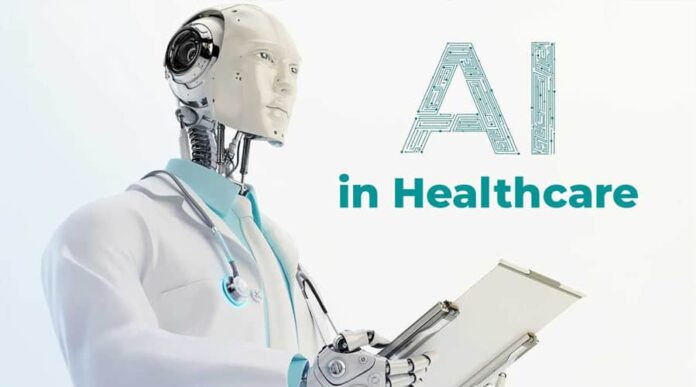Making use of Advanced Technology Therefore Artificial Intelligence commonly referred to as ‘AI’ has had an impact on multiple sectors and healthcare is not left behind.
However, since it has possibilities of changing the paradigms currently in the diagnosis, treatment.
Management of diseases, AI in healthcare is quickly finding its place.
In this blog post, we look at the various uses of AI in the health sector, the advantages, and drawbacks of using AI in the healthcare system.
how it can cause positive changes to patients’ lives and the greater healthcare system.
This paper seeks to explore the following subtopics:
There are numerous applications of AI in healthcare, including:
1. Diagnostics: Artificial intelligence can complement doctors in analyzing of images like x-rays, CT scans .
MRI for early identification of certain diseases and abnormalities. These systems can be also capable of detecting patterns.
which normal human can unfortunately fail to detect thus early diagnosis and treatment is possible.
2. Drug Discovery: AI is especially useful in genomics, being cited as capable of shortening.
The drug discovery process by using artificial intelligence to surmise the likelihood of a given compound being the next best drug.
its probable positive effect and likely dangers to the body.
Towards this end, it can mean faster development of new treatments, which are a direct offshoot of the reduced time period taken in the drug discovery process.
3. Personalized Medicine: Based on the large amount of information collected from the patient such as genetic makeu.
AI can recommend the right approach to be followed in treating the particular patient.
It can result in improved health and shorter lengths of stay or reduced utilization of medical services.
4. Remote Monitoring: By integrating wearable gadgets with Artificial Intelligence technology, patients’ vital signs can be continuously recorded.
healthcare professionals can be notified as soon as a patient’s sign deviates from normality.
This can assist in avoiding the occurrence of complications as well as the care of various chronic diseases such as diabetes and heart diseases.
The Advantages of Applying Artificial Intelligence in Health Sector

The incorporation of AI into the healthcare system offers numerous benefits, such as:
1. Improved Diagnostics and Treatment: With the help of AI, large collections of medical data.
can be processed to identify various patterns and trends that can be hardly recognized by a human being.
This can result in better patient prognosis, more exact diagnosis and treatment strategies.
2. Increased Efficiency: AI can assist in cutting down on nonclinical work and take off extra burdens from the kernels of healthcare.
where they can be annihilated or perhaps shift their attention to operations that guarantee high-quality care services to the patients.
3. Cost Savings: When diagnosis, treatment, and drugs are enhanced by the help of AI, the system becomes more cost-effective, and thus effective.
4. Personalized Patient Care: AI can also work on patient data that results in an effective treatment plan .
That will enhance the well-being of the patient and at the same time increase the satisfaction of the patient.
Implementing AI in healthcare: the craze and the challenges
While AI has the potential to revolutionize healthcare, there are several challenges that need to be addressed, such as:
1. Data Privacy and Security: Original patient details are often compromised and thus patients’ data security boosts require special inherent measures.
2. Lack of Standardization: Of all the challenges mentioned above, the first is particularly important because there is, as yet, no universal standard for healthcare data.
3. Regulatory Issues: As with any existing technology, there is a struggle to implement standardized protocols.
For the regulation of the utilization of Artificial Intelligence in healthcare, and for the protection of patients’ rights to data privacy.
4. Human Resistance: Health care workers may resist the use of AI in their practice to begin with because they are used to the conventional approaches in treatment.
Conclusion
It implies that by incorporating AI as a system in the delivery of healthcare, this can go along way in increasing the positive outcomes of the patients.
As well as the entire healthcare delivery.
AI can help the healthcare providers in diagnosing the disease, the treatment process, drug development, and patient care.
Every coin has its two sides, and even though there are challenges pertaining AI in the medical industry.
The opportunities outweigh so it will be a worthy cause to encourage its use.
As we educate ourselves and research further on the powers of AI in healthcare, there is nothing but excitement for how advanced technology.
bespoke medicine come to help patients all around the world.



